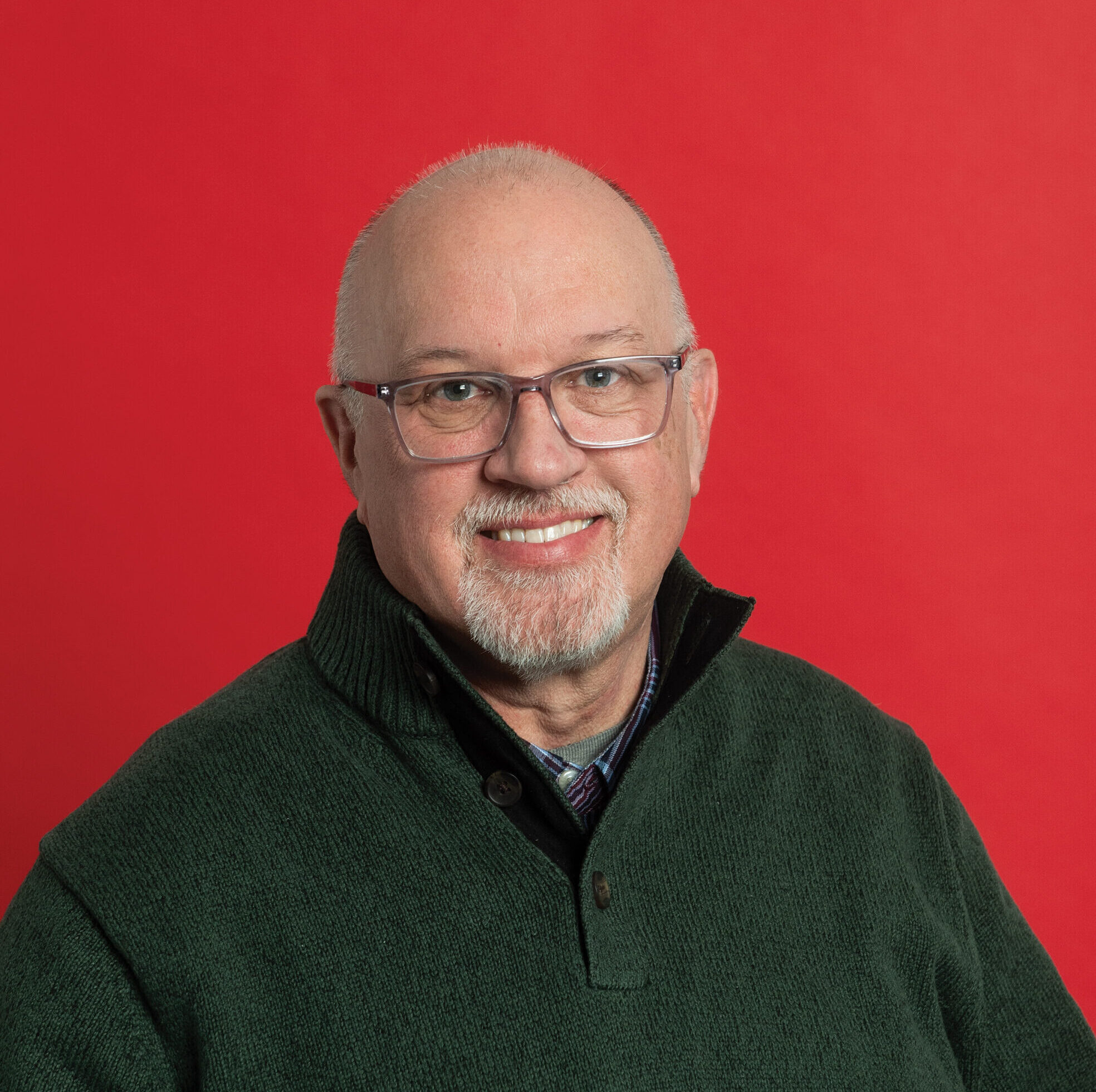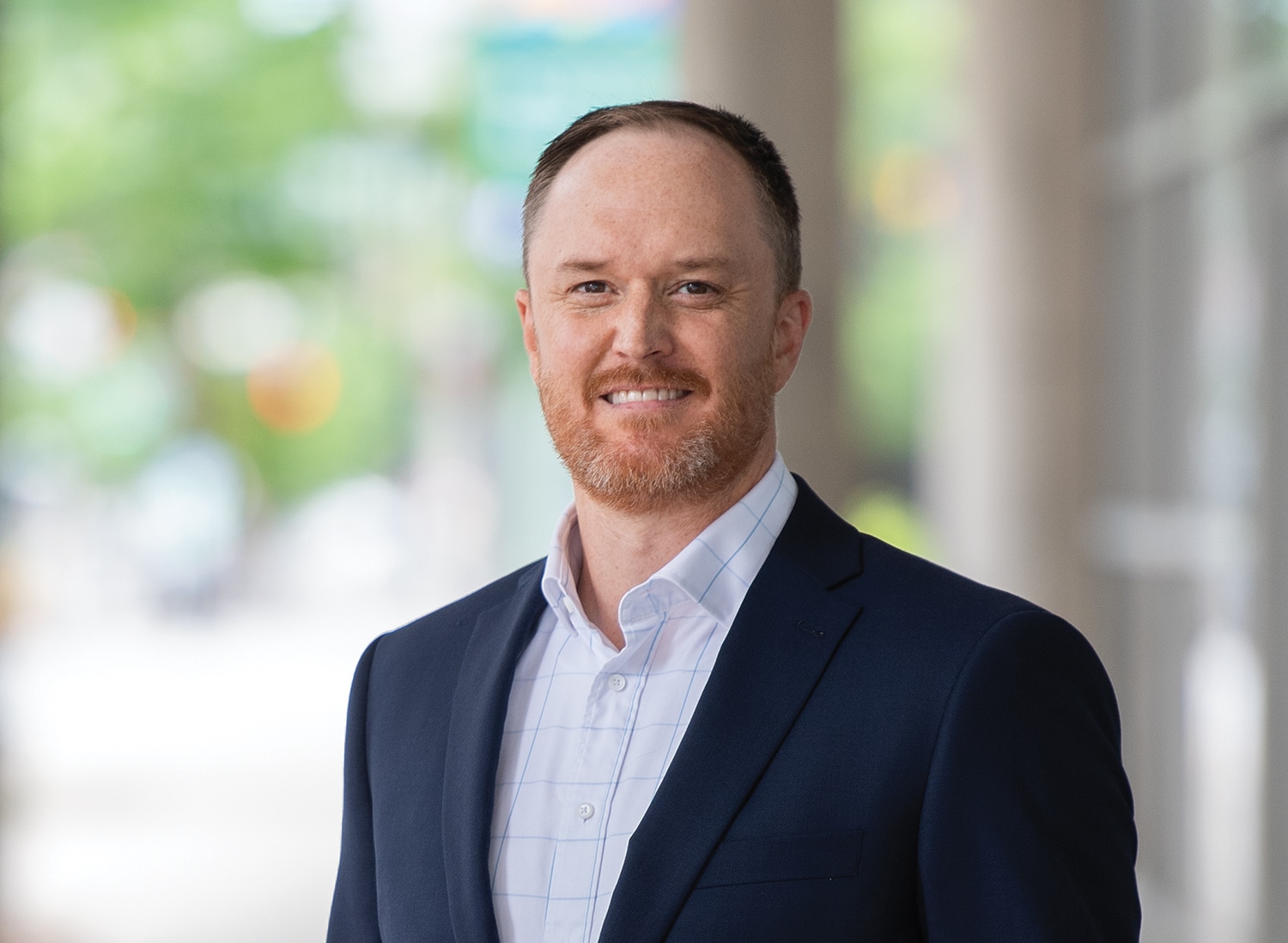A Closer Look: Dylan Mullenix
Executive director, Des Moines Area Metropolitan Planning Organization

Dylan Mullenix is no stranger to the Des Moines Area Metropolitan Planning Organization, celebrating his 18th anniversary with the regional transportation entity this summer. He started with the MPO as a transportation planner and rose to senior planner, principal planner and assistant director before being tabbed as interim executive director in the spring of 2023.
The official selection for the top job was announced earlier this year, and he was able to drop the interim tag in February.
The MPO has been around in some form since the 1960s but celebrated its 40th anniversary in its current form last year. While a lot has changed in the region over that time, in a lot of ways, the MPO’s mission has stayed the same, Mullenix said.
“We work with communities, cities, counties, transit authorities — our core function hasn’t changed,” he said. “Every time there’s a transportation bill that comes out, the function has changed a little bit, so in terms of what our focus area is, that has slowly evolved from maybe build more and more and more to let’s take care of what we have and focus more on multimodal transportation.”
Tell us more about the evolution of the MPO as the region has grown and changed.
This is a rapidly growing region and maybe for the first 10 years or so, it was largely that mindset of let’s keep growing without regard to the interactions among transportation, how it related to affordable housing and the environment and economic development. So over the past 10 years or so, that’s really been more of our focus, is how does transportation and infrastructure play into these regional needs? We have the Tomorrow Plan, we have Capital Crossroads, we have some of these big overarching regional plans and that’s helped us really find the role the MPO plays in fulfilling those regional plans.
Are there challenges today in achieving those regional goals that didn’t exist 10 years ago?
Whenever we start to get more involved with other topic areas, that can pose a challenge as to what is the role of this organization. There’s obviously a lot that can be done within transportation alone. Do we focus all on multimodal or do we focus just on one mode or another? You start throwing in some of those things that can be a challenge because there are not enough resources. But I think we’ve done a decent job of really trying to stick with transportation, how does transportation help with affordable housing? How do we help DART? Like I said, every time there’s a new transportation bill, that changes things and with the most recent bill that was passed a few years ago, there’s a lot of federal funding and that helps us pivot into the areas we need to focus on because that’s where the money is going. So in the most recent bill, there’s a focus on climate change and electric vehicle charging and those types of activities. Whenever there is that type of federal backing, it helps everyone move in the same direction.
What would you like to see included in the next transportation bill?
The current one had a lot of new funding, and I think it would be great if we could keep up that level of funding. I don’t know if that’s going to be possible, but just really continuing down that path. I think there was finally a realization that we need to invest more in our transportation system nationally. And given some of what we’re limited to do locally with property taxes, it’s nice to have that influx of federal funding to offset that. So it would be nice to see that continue on.
How did your previous experience with the MPO help prepare you for your new role?
I’ve been fortunate that I had been here awhile and I know what the region, what the projects are. I know the people, our board members and the communities and the leaders and all that obviously helped me jump out and hit the ground running. Still, it can be very complicated to walk into, so I was very fortunate. And to be able to walk in when I interviewed for the job quite frankly and say this is what I have observed over my tenure here, here is what I’d like to see going forward, here is what I think we have the potential to do moving forward with the blessing of the board.
What does the MPO have the potential to do moving forward?
With the federal funding that’s out there, the funding we’ve already received and maybe some potential new funding, I think we have the opportunity to be a little more strategic with how we want to go about using those funds. When you look at the MPO funding at the end of the day compared to all the state funding and local funding, we’re really a small portion of that. It way outpaced the federal funding we receive, so how do we make the best use of our limited dollars and be intentional with what we want to do with those funds?
What are some of your goals for the MPO?
We get about $17 million [in federal funding], so rather than looking at we have $17 million, what are we going to do with that $17 million, let’s look at it maybe over a five-year period or so and think about it a little more long term. We do long-range planning, but I don’t know if we’ve always done the best of what our long-term goals are and then here’s our year-to-year implementation of that. I think we can do a better job of bringing all of that together with how we invest in the transportation system to meet those long-range goals. At the end of the day, the MPO doesn’t build or own or operate anything. We’re really facilitating that process and trying to bring all of those 20 communities and get them rowing the same direction. I think we can do a little better job of facilitating that process and making sure everybody is working toward that same goal. A lot of projects are multijurisdictional and that’s a role the MPO can play in making sure everybody’s on the same page. Organizationally, making sure we have the right people doing the right things with the right skills to best help our communities. And to get our board in the right position and get them to feel empowered so they understand they are really the ones in charge and driving the ship. And then have a great direction that we’re going. When you get those three things overlapping, you get an optimized MPO. I think we can be a little more strategic as an organization.
How would you describe your management style?
I very much want to hear from everybody. It’s to get the right people here. Empower them to do their job well. Set the tone but let them do their job. Surround yourself with smart people who will argue with you. That resonates with me.
What have you read recently that you would recommend?
I recently read “Paved Paradise: How Parking Explains the World” by Henry Grabar.
It helps explain why, first of all, the role government has in how our communities develop, the people that run the parking system, the private sector folks, what rates they charge, all of that has these percolating effects on the community that affect your rent and how much you pay for your sandwich. All the ramifications of that. The amount of parking that’s paved affects the runoff that affects the river. It’s a really interesting view through the lens of parking.
You’ve talked about the death of your brother-in-law, who was hit by a car while biking. Has that influenced the work you do with the MPO?
Being someone who bikes and I’m a runner, and I’m out there in the community as a pedestrian, you do look at it from a different perspective. I also drive a lot, but when you go through that, I’ve had one of my best friends hit by a car, my grandpa was hit by a car while biking, unfortunately, I’ve had that happen several times, and yeah you take a little different perspective. It makes it a little more personal.
At a glance
Age: 43
Hometown: Ankeny
Family: Married, two children, ages 13 and 4
Education: Bachelor’s degree in anthropology with a minor in geography from the University of Iowa, and a master’s degree in urban and regional planning from the University of Iowa.
Activities: Kids’ activities, exercising, biking, running and reading
Contact: dmullenix@dmampo.org

Michael Crumb
Michael Crumb is a senior staff writer at Business Record. He covers real estate and development and transportation.











